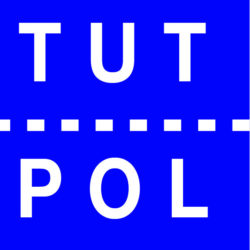VREF, Volvo Research and Educational Foundations, is the collective name under which four foundations collaborate to finance research and education in the areas of transport, environment and energy. Since the turn of the century the VREF has focused on Future Urban Transport (FUT) with the subtitle “How to deal with complexity.” The foundations are endowed and legally independent under Swedish law.
The mission of the FUT program is to contribute to new ideas and solutions within the complex structures responsible for the design of sustainable transport systems in big cities. The challenge is to develop urban transport systems that provide access for all the citizens, contribute to economic development and at the same time radically reduce transport’s negative local, regional and global environmental impacts.
FUT is currently comprised of eight Centres of Excellence, CoE, in six regions of the world: New Delhi, Berkeley, New York/Nairobi, Beijing, Melbourne, London, Cape Town and Santiago de Chile. The next CoE is scheduled to start during 2013 in the area of urban freight. Two more initiatives are under preparation: Financing Urban Access and the role of political leadership in the transformation of urban transport. The CoEs are primarily engaged in applied research, dissemination and communication of research results and education. The VREF also organizes annual conferences for all the CoE’s for mutual exchange of ideas and work in progress. VREF has also funded a number of projects, conferences and other events, often linked to the CoE network.
VREF is governed by a Board and a Scientific Council. The Board decides on activities to be financed, formulates VREF policy and guidelines, and is responsible for long-term asset management. The Scientific Council is responsible for evaluating the scientific quality of both the applications that are submitted to VREF and the ongoing work that is carried out.
The investigative, speculative aspect of the work of the Graduate School of Design is akin to Walter Benjamin’s wresting of tradition from its tendency to conform. Rethinking the conventions of design practice is, for us, an optimistic and essential project, undertaken with the knowledge that our efforts make a difference in the physical environment. The GSD offers an exciting setting for interaction and the exchange of ideas through the combination of disciplines—architecture, landscape architecture, and urban planning and design—together with the research of our studio-based as well as MDes and Doctoral programs. Working in collaboration with colleagues in other schools at Harvard and beyond the University, we see it as our responsibility to define the necessary framework for an intense yet engaging advancement of transdisciplinary research—providing multiplicity and consistency, singularity and diversity.
Our program has a social dimension aimed at the construction of alternative and sustainable futures, which places it in the ethical and political realm. The complexities of contemporary global and environmental issues—the impact of rapid urbanization; the scarcity of resources; the after-effects of disasters, both natural and manmade; and the continuing inequities between the rich and poor nations of the world—require solutions that are both imaginative and emancipatory. If we are to plan better futures, we need to create new organizational structures, new patterns and forms of collaboration. If we are to rethink the present, we need to constantly recalibrate the relationship between tradition and innovation, knowledge and imagination. With its superb faculty and students, the Harvard Graduate School of Design is poised to lead design’s global cause. The imaginary is the infrastructure of our project. The future begins here.
—Dean Mohsen Mostafavi

